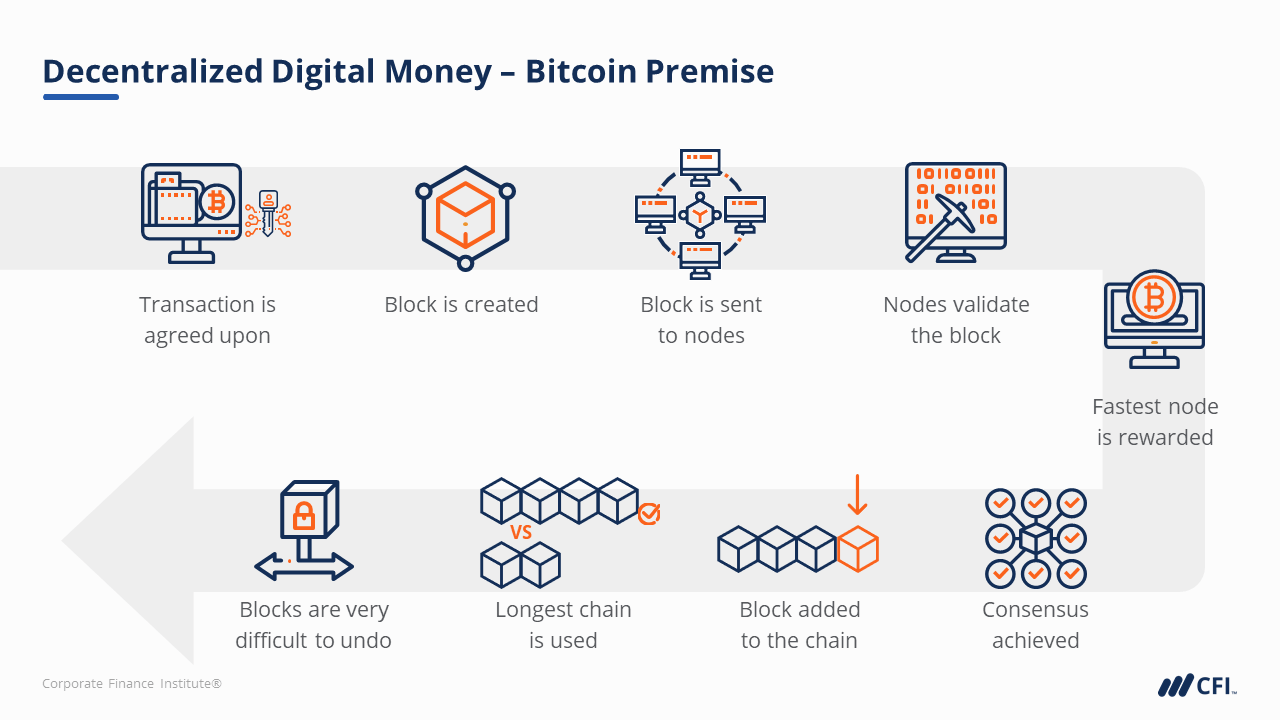Understanding Bitcoin: Bitcoin History, Functionality and Impact of the First Cryptocurrency
Bitcoin, the first decentralized digital currency, was created in 2009 by an anonymous individual or group using the pseudonym Satoshi Nakamoto. It operates on a decentralized platform, using complex mathematical algorithms to secure and verify transactions and is secured by cryptography. Since its creation, Bitcoin has been the focus of attention of many, as it has become a revolutionary form of decentralized digital currency that operates independently of a central bank or government. It has had a significant impact on the global financial system, with many businesses and individuals beginning to accept it as a form of payment and it is also being used as a form of investment. However, many people are still confused about what Bitcoin is and how it works, and its impact on the economy.
The History of Bitcoin
Bitcoin was first introduced in 2008, in a whitepaper written by an individual or group of individuals using the pseudonym Satoshi Nakamoto. The whitepaper outlined the concept of a decentralized digital currency that would operate independently of a central bank or government. The first Bitcoin transaction took place in January 2009, and since then, the number of Bitcoin transactions has continued to grow. Despite the anonymity of its creator, the impact of Bitcoin on the economy has been significant.
How Bitcoin Works
Bitcoin works on a peer-to-peer network, meaning that transactions take place directly between users without the need for intermediaries such as banks. When a transaction takes place, it is broadcast to the entire network and verified by network nodes using complex mathematical algorithms. Once a transaction is verified, it is added to the blockchain, creating a permanent and unchangeable record of all transactions on the network. Bitcoin is decentralized and operates independently of a central bank or government. Blockchain technology, which is the backbone of any cryptocurrency, is a decentralized, digital, public ledger of all cryptocurrency transactions.

The Importance of Bitcoin
One of the main advantages of Bitcoin is that it allows for fast and secure transactions without the need for intermediaries such as banks. It also offers a high degree of anonymity, as users can make transactions without revealing their identity. Bitcoin has also had a significant impact on the global financial system, with many businesses and individuals beginning to accept it as a form of payment. Additionally, it has also been used as a form of alternative investment and store of value. It has been a revolutionary form of decentralized digital currency that operates independently of a central bank or government.
How to buy and store Bitcoin
To buy Bitcoin, you can use a Bitcoin exchange or a peer-to-peer marketplace. There are different ways to buy bitcoin such as through a bank transfer, debit card or credit card. It’s important to choose a reputable and secure platform. Once you have purchased Bitcoin, it is important to store it in a secure digital wallet to ensure the safety of your funds. There are different types of digital wallets such as software wallets, mobile wallets, and hardware wallets. Software wallets can be accessed through a computer or mobile device, while mobile wallets are accessed through an app on a mobile device. Hardware wallets are considered the safest way to store Bitcoin as they are not connected to the internet and are therefore less vulnerable to hacking. Hardware wallets are physical devices that look like a USB drive, that can store the private key of the wallet, it’s important to keep the device safe and not to lose it.
Bitcoin’s Impact on the Economy
Bitcoin’s impact on the economy has been a topic of debate. Some argue that it has the potential to disrupt traditional financial systems and create new opportunities for economic growth. Others argue that it is too volatile and risky to be a viable form of currency or investment. Some of the most notable impacts of bitcoin on the economy include the decentralization of finance and the democratization of financial services, the reduction of transaction costs, and the ability to provide financial services to the unbanked population. However, it’s important to remember that the crypto market is highly volatile and can be risky, the value of cryptocurrencies can fluctuate greatly in a short period of time, and it is not regulated by any government or institution.
Conclusion
Bitcoin, the first decentralized digital currency, was created in 2009 and has since had a significant impact on the global financial system. It allows for fast and secure transactions without the need for intermediaries, offers a high degree of anonymity, and has been used as a form of alternative investment and store of value. It operates on a decentralized platform and is secured by cryptography. Understanding the history, functionality and impact of Bitcoin is important for anyone interested in the crypto market. It’s also important to be aware of the potential for fraud and scams in the crypto space, as well as the volatility of the market.






